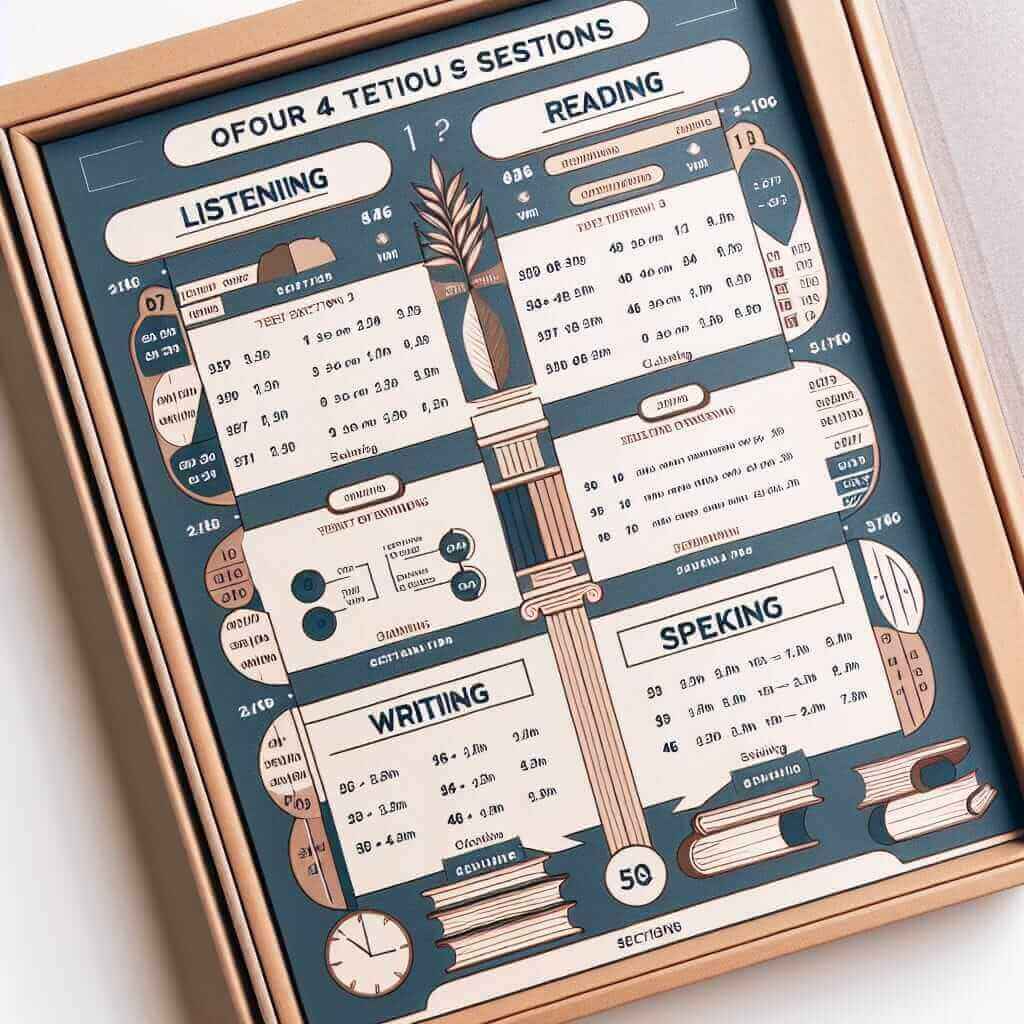The IELTS (International English Language Testing System) is a critical examination for non-native English speakers aiming to study or work in English-speaking countries. Scoring well in IELTS can open doors to opportunistic ventures. This article provides a comprehensive, five-month study plan to prepare for the IELTS effectively.
Introduction
Preparing for the IELTS in five months requires consistent effort and strategic planning. Understanding the structure of the exam and utilizing effective study methods are paramount. We’ll break down a detailed step-by-step approach to help you prepare comprehensively.
Understanding the IELTS Exam
Before diving into preparation, it is crucial to understand the format of the IELTS test. The IELTS is divided into four main sections: Listening, Reading, Writing, and Speaking. Each section evaluates different language skills and requires distinct preparation strategies.
IELTS Sections Overview
- Listening: 40 questions, 30 minutes
- Reading: 40 questions, 60 minutes
- Writing: 2 tasks, 60 minutes
- Speaking: 3 parts, 11-14 minutes

Five-Month Preparation Plan
Month 1: Foundation and Familiarization
Setting a Base Level
Start with a diagnostic test to determine your current level. This will identify your strong and weak areas.
Learning Resources
- Books: “The Official Cambridge Guide to IELTS” provides an excellent starting point.
- Online Platforms: Websites like IELTS.org, British Council, and IELTS Simon offer valuable resources.
Example Exercise
Listen to an official IELTS Listening sample (IELTS Cambridge Book) and answer questions. Review and analyze mistakes to understand where you need improvement.
Month 2: Building Core Skills
Focus on Each Section
- Listening: Practice with various accents and types of recordings. Use materials like BBC podcasts or TED Talks.
- Reading: Enhance your reading speed and comprehension. Read articles from sources like The Guardian or BBC News.
- Writing: Practice writing essays on different topics. Focus on structure and coherence.
- Speaking: Engage in conversations with native speakers or use platforms like iTalki.
Example Exercise
Write an essay on the following topic:
“In some countries, young people are encouraged to work or travel for a year between finishing high school and starting university studies. Discuss the advantages and disadvantages for young people who decide to do this.”
Evaluate your essay using the IELTS Writing Band Descriptors.
Month 3: Intermediate Practice and Techniques
Incorporate Timed Practices
Begin practicing under timed conditions to get accustomed to the exam’s time constraints.
Strengthening Vocabulary and Grammar
Regularly study IELTS-related vocabulary and idiomatic expressions. Resources like the “Oxford Advanced Learner’s Dictionary” are invaluable.
Example Exercise
Practice reading comprehension with a passage from an IELTS Reading Test. Answer the following:
“True, False, Not Given” questions to improve critical reading skills.
Month 4: Advanced Preparation and Mock Tests
Simulate the Exam Environment
Take full-length practice tests every week. Analyze mistakes and focus on weak areas.
Detailed Review and Feedback
After each mock test, review incorrect answers to understand mistakes. Seek feedback from a tutor if possible.
Example Exercise
Participate in an online speaking session that mimics the IELTS Speaking Test’s structure. Record yourself and identify areas for improvement.
Month 5: Final Preparations and Exam Strategies
Perfecting Exam Techniques
- Listening: Pay attention to keywords and their synonyms.
- Reading: Skim and scan efficiently.
- Writing: Use complex sentences and a rich vocabulary.
- Speaking: Practice fluency and coherence.
Stress Management and Rest
In the final weeks, balance between practice and rest. Avoid cramming and focus on maintaining a clear mind.
Example Exercise
Create a study schedule for the week leading up to the exam, incorporating light practice sessions and relaxation activities.
Common Mistakes and Solutions
Errors to Avoid
- Overloading: Don’t overload yourself with too many materials. Focus on quality sources.
- Neglecting any Section: All sections are equally important.
- Ignoring Timed Practice: Time management is vital.
Solutions
- Prioritize Weak Areas: Spend more time on sections you struggle with.
- Regular Feedback: Get regular feedback from teachers or peers.
- Maintain Consistency: Study consistently, rather than cramming last minute.
Practice Techniques
- Daily Practice: Allocate 1-2 hours of daily practice.
- Mock Tests: Take mock tests every weekend.
- Feedback Loop: Review incorrect answers and understand why they were wrong.
- Interactive Learning: Use language exchange sites, online forums like Reddit’s r/IELTS.
Conclusion
Preparing for the IELTS in five months is entirely achievable with a structured plan and consistent practice. Focus on each section, practice under timed conditions, and regularly review your progress. Good luck!
Feel free to leave comments or questions, and explore more resources on our site to support your IELTS preparation journey!